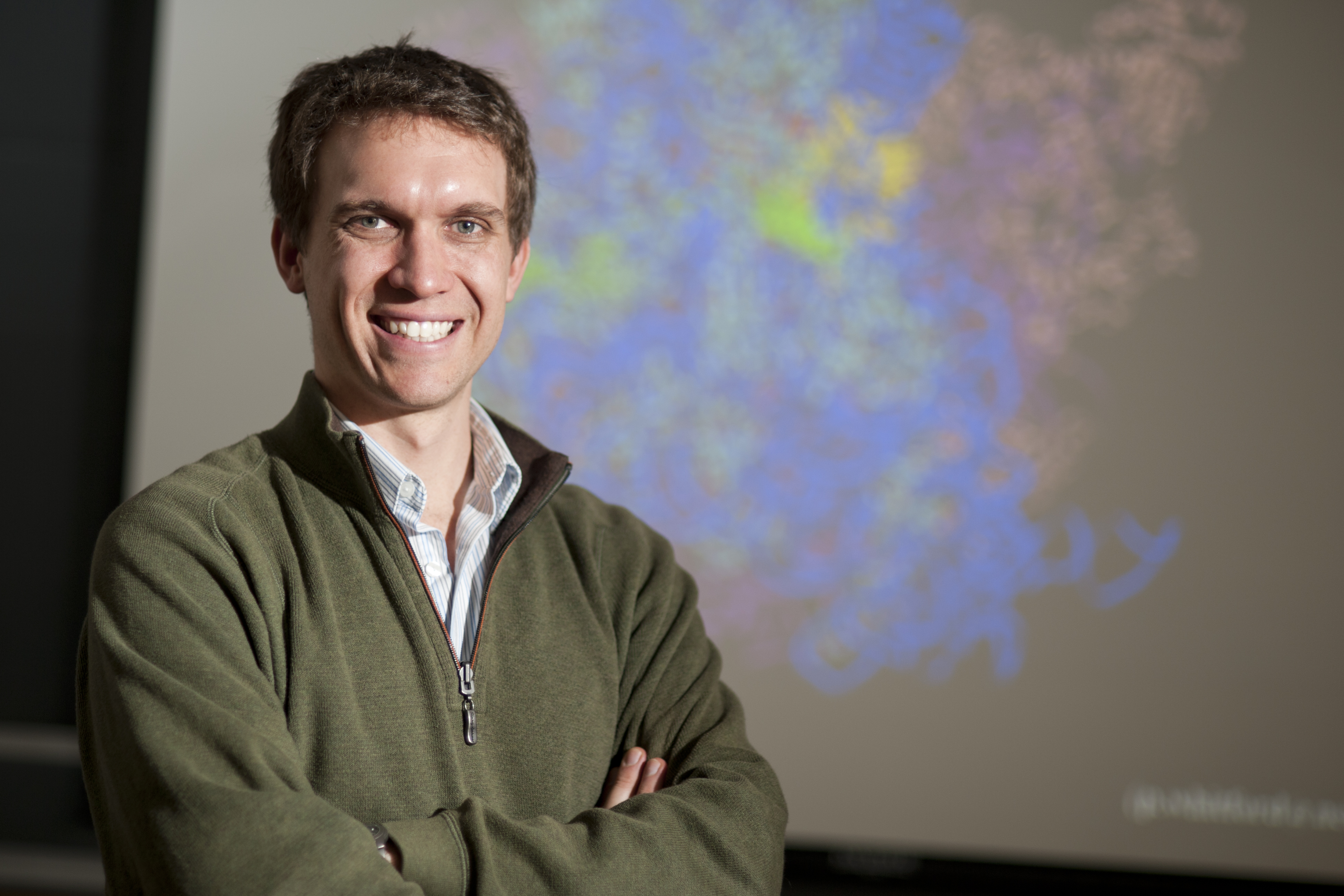Assistant Professor of Physics Paul Whitford sits down with the College of Science Graduate Program staff to talk about his research at Northeastern University.
Tell us about your current research.
Our group uses high performance computing to investigate the physical principles that govern biological dynamics. In particular, we have been developing theoretical models that allow us to simulate large-scale dynamics in the ribosome. The ribosome is a massive (~250,000 atom) assembly that is responsible for producing proteins in the cell. Since the ribosome is the sole producer of proteins, insights into its dynamics is central to our understanding of all forms of life. In addition, the complexity of the ribosome allow it to serve as an ideal system for identifying general physical principles that guide biological function.
What drew you to your field?
As an undergraduate researcher studying the dynamics of complex fluids, I decided that I wanted move towards an area of physics that could have a positive impact on human health. The aim of biological physics is to establish theoretically-grounded predictive insights into biological dynamics. The long-term goal is that these insights could allow for quantitative control of biological and disease processes.
What do you like most about being a faculty member at Northeastern?
My favorite part about being faculty at Northeastern is working with graduate students, both in courses and in research. I like seeing graduate students push their depth of understanding far beyond their expectations.
What is your favorite part about Northeastern?
My favorite part about Northeastern University is its dedication to expanding basic and translational research. This dedication is highlighted by numerous recent investments, including the Massachusetts Green High Performance Computing Center and the brand new Interdisciplinary Science & Engineering Complex. These world-class resources are fostering the advancement of adventurous scientific and engineering studies.
What is your favorite part about Boston?
The number of activities for young adults in unparalleled. There are art, science and social activities throughout the year. In addition, with the large number of colleges and universities, Boston is a very young and vibrant city.
What advice would you give to new and current COS graduate students?
Earning a PhD is difficult. Make sure to work hard, but also try to take advantage of what Boston has to offer.

